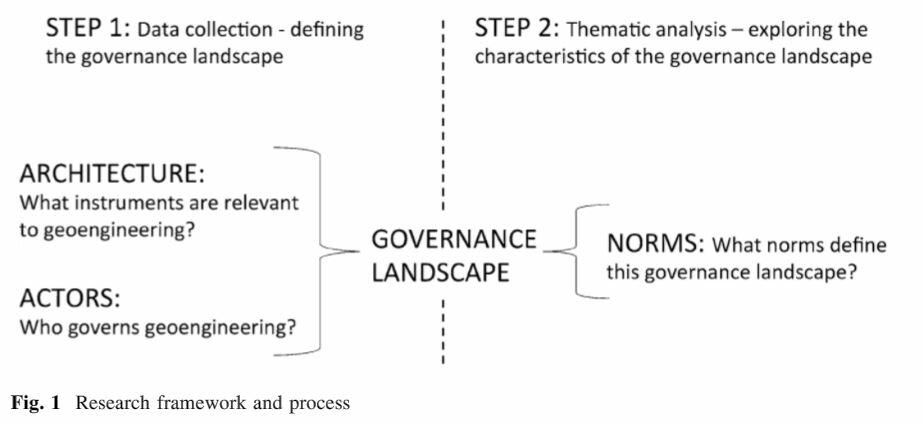Geoengineering governance-by-default: an earth system governance perspective

Authors: Anita Talberg, Peter Christoff, Sebastian Thomas, and David Karoly
Abstract: Geoengineering—the deliberate interference in the climate system to affect global warming—could have significant global environmental and social implications. How to shape formal geoengineering governance mechanisms is an issue of debate. This paper describes and analyses the geoengineering governance landscape that has developed in the absence of explicit geoengineering regulation. An Earth System Governance perspective provides insight into the formation of norms resulting from an overlap in international treaties and from the actions of engaged non-state agents. Specifically, the paper explores the instruments and actors having effect in existing formal and informal geo-engineering governance mechanisms. It finds that geoengineering is subject to a form of ‘governance-by-default’. This is due to a situation in which state actors have not resolved the tension between two legal norms: that of ‘precaution’ and that of ‘harm minimisation’. This governance-by-default is characterised by uneven regulation from existing multilateral agreements established for other purposes, an absence of regulation specifically focused on geoengineering, guidance from an international ambition to hold global average warming below 2 °C and to achieve net-zero emissions in the second half of the century, and strong normative engagement by the research community. Governance-by-default is likely to be a stopgap development until more enduring and focused governance emerges.
Citation: Talberg, A., Christoff, P., Thomas, S., & Karoly, D. (2017) Geoengineering governance-by-default: an earth system governance perspective. International Environmental Agreements: Politics, Law and Economics, 1-25.